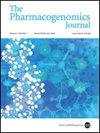A systematic review on the cost effectiveness of pharmacogenomics in developing countries: implementation challenges
IF 2.9
3区 医学
Q2 GENETICS & HEREDITY
引用次数: 7
Abstract
The major challenges that delay the implementation of pharmacogenomics based clinical practice in the developing countries, primarily the low- and middle-income countries need to be recognized. This review was conducted to systematically review evidence of the cost-effectiveness for the conduct of pharmacogenomics testing in the developing countries. Studies that evaluated the cost-effectiveness of pharmacogenomics testing in the developing countries as defined by the United Nations were included in this study. Twenty-seven articles met the criteria. Pharmacogenomics effectiveness were evaluated for drugs used in the treatment of cancers, cardiovascular diseases and severe cutaneous adverse reactions in gout and epilepsy. Most studies had reported pharmacogenomics testing to be cost-effective (cancers, cardiovascular diseases, and tuberculosis) and economic models were evaluated from multiple perspectives, different cost categories and time horizons. Additionally, most studies used a single gene, rather than a gene panel for the pharmacogenomics testing. Genotyping cost and frequency of risk alleles in the populations influence the cost-effectiveness outcome. Further studies are warranted to examine the clinical and economic validity of pharmacogenomics testing in the developing countries.

关于发展中国家药物基因组学成本效益的系统审查:实施方面的挑战
在发展中国家,主要是中低收入国家,延迟实施基于药物基因组学的临床实践所面临的主要挑战需要得到认识。本综述旨在系统地审查在发展中国家进行药物基因组学检测的成本效益证据。本研究纳入了对联合国定义的发展中国家药物基因组学检测成本效益进行评估的研究。共有 27 篇文章符合标准。对治疗癌症、心血管疾病以及痛风和癫痫等严重皮肤不良反应的药物进行了药物基因组学效果评估。大多数研究报告称药物基因组学检测具有成本效益(癌症、心血管疾病和肺结核),并从多个角度、不同成本类别和时间跨度对经济模型进行了评估。此外,大多数研究使用单个基因而非基因组进行药物基因组学检测。基因分型成本和人群中风险等位基因的频率会影响成本效益结果。有必要开展进一步研究,以考察药物基因组学检测在发展中国家的临床和经济有效性。
本文章由计算机程序翻译,如有差异,请以英文原文为准。
求助全文
约1分钟内获得全文
求助全文
来源期刊

Pharmacogenomics Journal
医学-药学
CiteScore
7.20
自引率
0.00%
发文量
35
审稿时长
6-12 weeks
期刊介绍:
The Pharmacogenomics Journal is a print and electronic journal, which is dedicated to the rapid publication of original research on pharmacogenomics and its clinical applications.
Key areas of coverage include:
Personalized medicine
Effects of genetic variability on drug toxicity and efficacy
Identification and functional characterization of polymorphisms relevant to drug action
Pharmacodynamic and pharmacokinetic variations and drug efficacy
Integration of new developments in the genome project and proteomics into clinical medicine, pharmacology, and therapeutics
Clinical applications of genomic science
Identification of novel genomic targets for drug development
Potential benefits of pharmacogenomics.
 求助内容:
求助内容: 应助结果提醒方式:
应助结果提醒方式:


